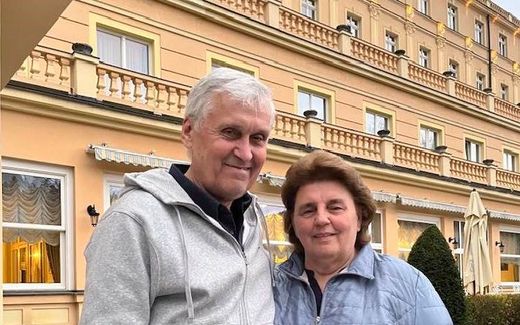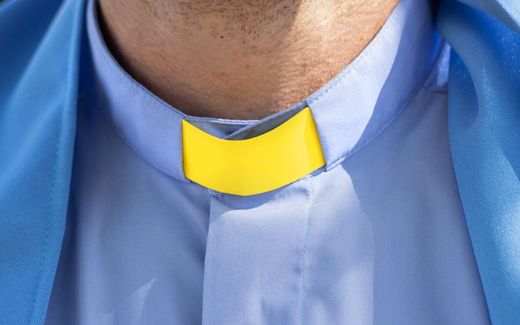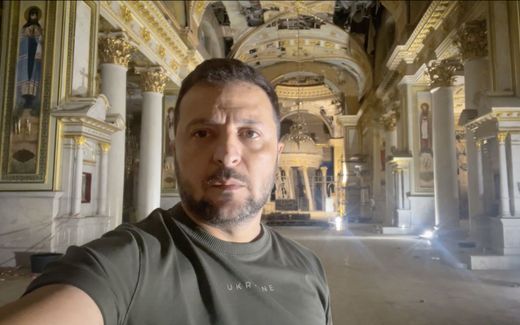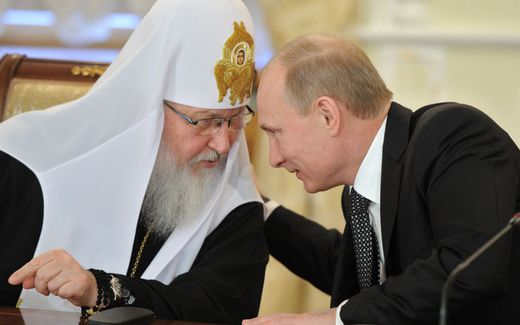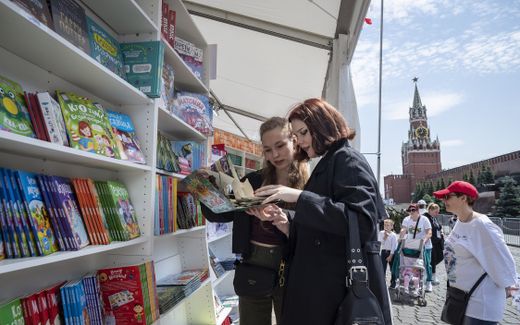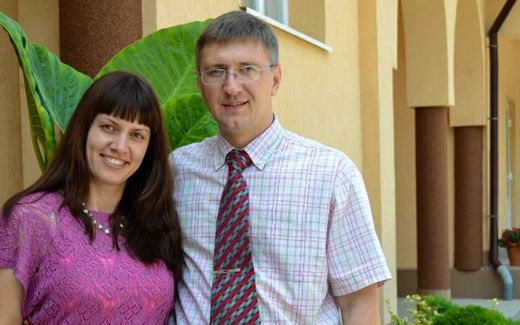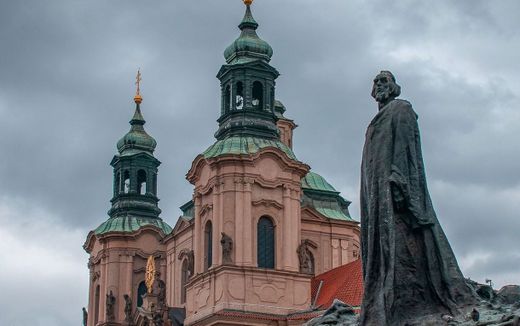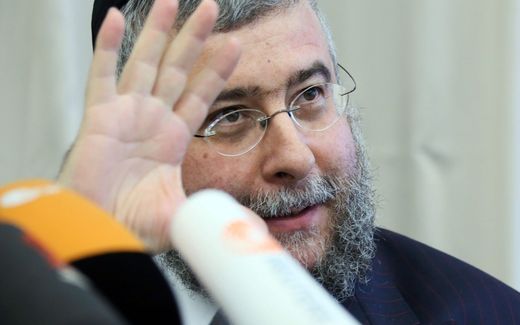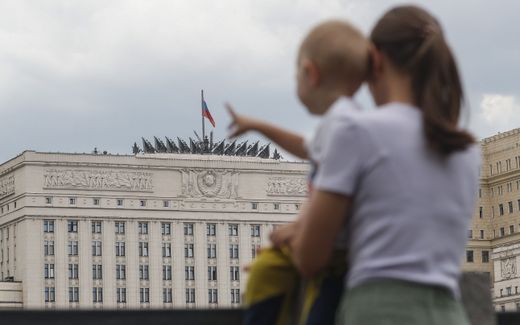Russian Baptist in German exile
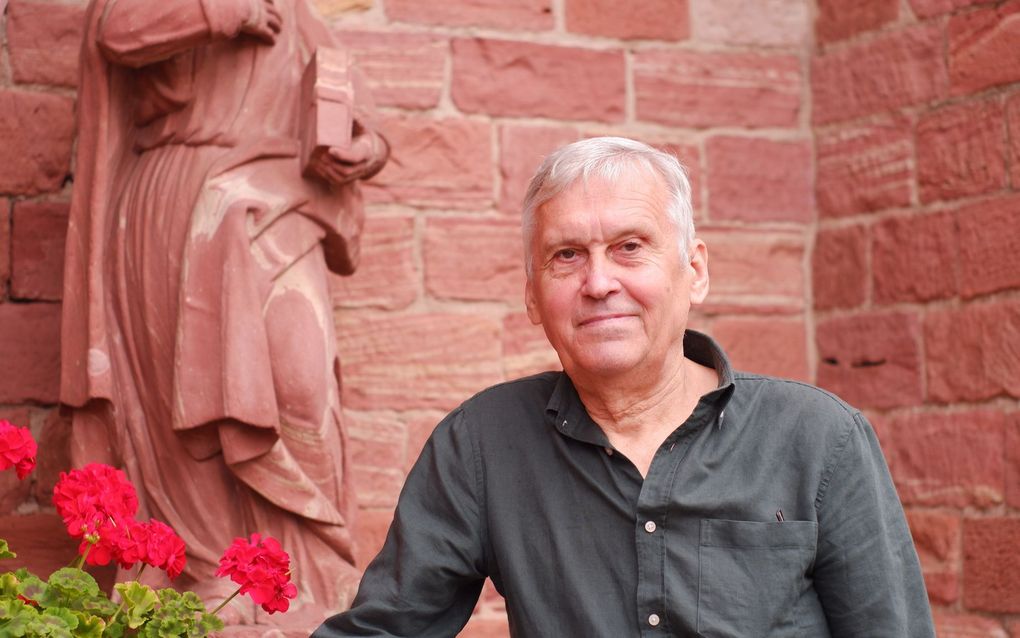
Yuri Sipko. Photo CNE, Evert van Vlastuin
Eastern Europe
Yuri Sipko had not got up that Friday morning with the plan to flee from Russia. But the clothes he put on were all he arrived in Germany with the next day. Three days later, police branded him as “wanted”.
For his wife, the departure came all too quickly; she stayed behind in Moscow. “Luckily, she quickly came after me,” Sipko says in the German town where he now resides.
Most of his ten children live near Moscow. One daughter lives in Germany, “taken away by a young man”, he says, smiling in the direction of his son-in-law, who is interpreting the conversation.
Earlier, his children had arranged visas for their parents to Germany. Grandpa and grandma could then easily come over to see the grandchildren. “Now God was using this as a backdoor for us,” the pastor said.
If it had been up to Sipko himself, he would have gone back to sleep in Moscow on the evening of that 4th of August. However, his children bought a plane ticket and “ordered” him to leave.
Earlier that day, a court journalist had called with the news that the police had launched a criminal investigation against him. Sipko checked this – and it turned out to be true. His son immediately drove him to Minsk in Belarus – a 700-kilometre drive.
At the checkpoint at the airport, the official asked in surprise if he had nothing else to carry. “I muttered that I don’t need much in the summer,” the Baptist pastor said. From Minsk, he flew to Istanbul in Turkey. From there, he travelled on to Germany. On Saturday, he arrived at the home of his daughter and son-in-law.
Meanwhile, his wife followed him. “She took my Bible and some extra stuff with her. As soon as winter turns, we will buy the things we need.”
A few days later, on August 8th, a special police unit searched Sipko’s home in Moscow. Being back home, his son was interrogated and detained during the search. Images of the investigation appeared in the Russian media, and it was reported that Sipko had “deliberately spread false information about the Russian army”.
What did you do?
“I did nothing but tell the truth. But the KGB cannot bear that.
On my Facebook page, I called the war in Ukraine a crime. On YouTube, I called for an end to the war and for tanks to be returned to the barracks. During the mobilisation, I said: Don’t go, even if you have to go to jail, because you are participating in a criminal action. But “pravda” (truth, EvV) is a crime in Russia today. You can get 20 years in prison for it.”
How did you experience all this? “I smiled a little at it. I don’t stand out as a small Baptist in the great Russian empire striving for world domination. Besides, I am old and toothless.” When he smiles, it can be seen that he still has plenty of teeth.
Nevertheless, as a pastor, you are known and have influence.
Sipko shrugs his shoulders. “Let the KGB decide how much influence I have. The critical people who have real influence already left Russia.”
The Baptist leader uses KGB as a catch-all term for the entire Russian system, he says. That includes everything. “The Kremlin, the Duma (parliament, EvV), and journalism. The KGB is waging a war against the whole world, but you can’t use the word war. KGB officers are often frightened people. That is precisely why they use violence.”
How do you see the future of the war in Ukraine?
“That one has no end. It is already a massacre of hundreds of thousands of people. That war cannot be stopped. I don’t venture to talk about an end to it.”
People say that Russians’ willingness to die is much greater than that of Westerners. How do you see that? “That’s true. If you have lived in atheism for centuries, life has no meaning. After all, man is a modernised ape. In the Soviet Union, you were part of the Russian collective and had no property, for example. Then, it is all much easier to say goodbye to life. History also did show that a human life is not worth much in Russia.”
Sipko (71) has been retired for several years. From the 1980s, he served as a Baptist pastor. From 2002 to 2010, he was president of the Russian Union of Evangelical Christian Baptists (RUECB). He also was vice president of the World Baptist Alliance. Throughout his career, he stood out for his critical statements towards the government.
Have the police ever investigated you before?
“Njet. I am a law-abiding citizen. Although, as a Baptist, I am, of course, a dangerous sectarian.” Sipko has to laugh about it himself. “I have only been in prison to preach the Word of God.”
You are known as someone who does not mince words. Did you expect such an enquiry?
Sipko nods. “Yes. In recent months, the number of indictments for such things has grown. The KGB has cast a net over the country. No one is exempted from it. I did feel that this cup would not pass me by. Some Orthodox clerics have also been convicted. Among Protestants, I am the first to be affected.”
You could also have moderated your statements.
“Of course, I thought about that. Others have said the same. But when our bombs kill a brother in Ukraine, I cannot remain silent.”
Would you keep quiet if you still had a house full of children?
Sipko shakes no. “Even then, I always came out with the truth. When Russia invaded Georgia in 2008, I condemned it. In our country, hundreds of Jehovah’s Witnesses are detained. I have always defended them.”
When your house was searched, the police found pictures of Hitler, video footage showed. Where did those come from?
The pastor smiles. “Someone once gave me a DVD box containing BBC documentaries on Nazism. On the cover was a portrait of Hitler. I had never watched those DVDs, but it suited the KGB now.”
Sipko knows what this image does: it contributes to the idea that this Baptist is an “enemy of the people”. “At the same time, many people see through the KGB’s methods. The tragedy, of course, is that Russia is now living under Nazism. Our Führer’s name is different, but it is the same empire full of anger.”
As president of the Russian Baptists, you must have met this “Russian Führer” at some point?
“From a distance, yes. He always had a thick wall of people around him.”
How do you look at Yevgeny Prigozhin’s crash?
“A typical Soviet-era bandit prank. One bandit killing another. That’s how Stalin did it, too. No one survived.”
Russians have also died mysteriously abroad. How safe are you here?
“With God, I am absolutely safe. I don’t have to fear people who kill the body but not the soul. Furthermore, I think I am too small for the KGB.”
Master
Even as a child, Yuri felt that Russia did not love him. “We belonged to a hated sect and were always pursued. At school, we were insulted. The master told the other pupils we were spies from America and Germany.”
The Baptists tried to register as a church, but that request was invariably rejected. “If the police saw that we were meeting, they chased us apart, and our books were taken away because we were not registered. That was the policy.”
His father was also a pastor and was sentenced to five years’ labour camp in Irkutsk. His mother was left with eight children. Yuri was about nine years old. “At some point, my mother went to Moscow to talk to Khrushchev. Possibly, that helped. A short time later, my father was released.” The family grew by four more children after that.
“Cowards” told his father to moderate himself. “Fortunately, he didn’t,” says Sipko. His father is still a role model for him.
Protestants no longer go to penal colonies. But nothing has changed substantially, says Sipko. “The ‘stundists’ (Protestants, EvV) are still considered troublemakers.” Even in modern Russia, Baptists cannot build a house of worship.”
The Baptist Union office in Moscow, where we met in 2012, is a beautiful building, though.
“That’s right. That was built during perestroika, the reform under Gorbachev. We then had ten years of freedom, which led to a strong growth of Protestant congregations. But today, that is over. If you need a church, a private person must buy and use a building for the congregation.”
Refugee
Mr and Mrs Sipko are now staying in Germany. The visa is valid for a maximum of three years. Meanwhile, the Russian pastor has applied for refugee status.
He is enthusiastic about the hospitality and civility he meets in Germany. “Here is freedom. Millions of Ukrainians get shelter, care and living expenses here.”
On the streets, he is struck by how many migrants there are. “Afghans, Syrians, Africans. And they all look cheerful. That is only possible if they feel free and welcome. Here is real tolerance, regardless of your origin. You don’t find that in Russia.”
Moscow is also a multicultural city, with people from all corners of the Soviet empire.
“That’s true. But remember that Moscow is the showcase; the rest of Russia is different. Moreover, guest workers from Central Asia feel second-class in Moscow. They do not live in freedom because there is no real tolerance. Those on the run don’t go to Moscow. They do go to Germany.”
The human approach in German public policy evokes deep respect, he says. “People are committed to helping those suffering elsewhere and offering them a new future. This is the truly civilised Europe.”
How do you explain that?
“I see it as a fruit of the Reformation. The Gospel brings light and urges mercy. Christianity gives sight of the true value of life and human rights.
The Russian tradition is one of intolerance. In the Soviet Union, the disabled were put away until they died, the blind were institutionalised, and even left-handed people and homosexuals were not allowed to exist. The Russian Orthodox Church still preaches hatred of all those who are different. Genuine openness and inner freedom do not exist with us.”
Russian Orthodox Patriarch Kirill says Germany belongs to the godless West, where the family is suppressed, and everything is done for gay parades. How do you see that?
“Kirill is lying,” Sipko says emphatically. “And he knows he is lying. He has been in the West a lot, aiming to enrich himself and his church. He knows this is wrong.
In Russia, gay marriage may not officially exist, but life is no different. There are even Orthodox bishops who have a male partner. But in secret, of course.”
You are a pastor. Does that work continue in Germany?
“I have already preached a few times. Actually, I am retired. Everything has its appointed time, says Solomon. But I don’t turn it down when I get an invitation.”
Many congregations Sipko has contact with consist of so-called Russian-Germans. Wonderful communities, he says. “Churches full of happy families, with high morals and beautiful hymns, often also committed to refugees, like Ukrainians. In short, true Christians.”
You have been here for about six weeks now. What is the plan?
“Initially, the idea was to wait and see. In Russia, I now count as “wanted”. That really won’t be revoked anymore. Returning, therefore, is unthinkable.
My wife and I have resigned to the fact that we will not return during our lifetime. We do not grieve for that. We are guests here on earth; our home is in heaven. I wish to spend eternity with God. But as long as it is not His time, we will stay here on earth. Perhaps in Germany, if we are not driven out.”
Related Articles


